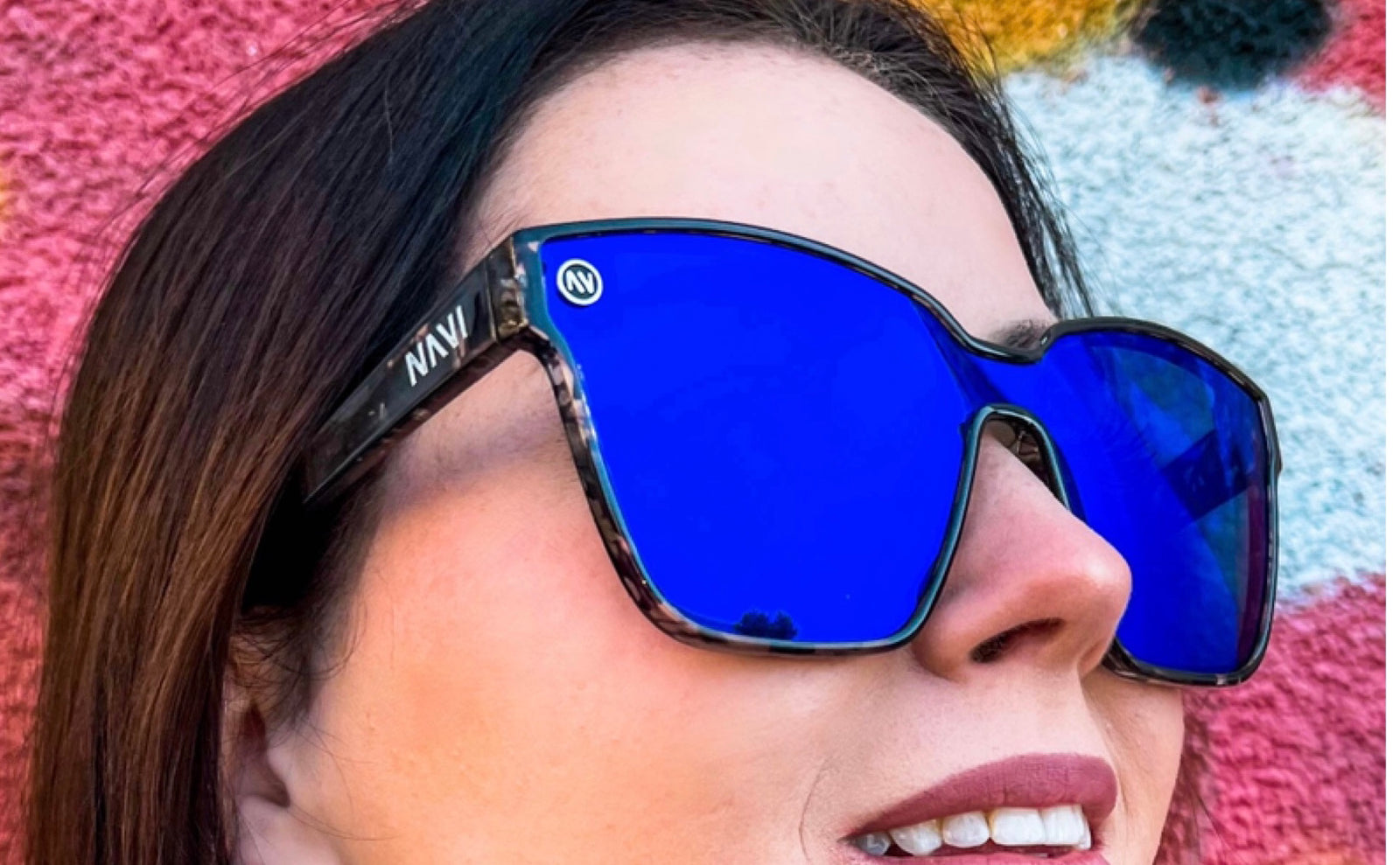Are you looking for the perfect pair of polarized sunglasses? Polarized sunglasses are a popular choice because they reduce glare and provide better vision in bright light conditions. But choosing the right polarized sunglasses can be a daunting task, especially when you consider your face shape and skin tone. In this article, we'll provide you with a comprehensive guide on how to choose the right polarized sunglasses for your face shape and skin tone.
The Importance of Choosing the Right Polarized Sunglasses
Polarized sunglasses are designed to reduce glare and improve vision in bright light conditions. They have a special filter that blocks reflected light and reduces glare, which can be especially helpful when driving, fishing, or participating in other outdoor activities. Wearing the wrong sunglasses can not only be uncomfortable but can also result in eye strain and damage to your eyesight. Therefore, it is important to choose the right polarized sunglasses that not only protect your eyes but also enhance your appearance.
How to Choose the Right Polarized Sunglasses for Your Face Shape and Skin Tone
Choosing the right pair of polarized sunglasses is essential for both your comfort and style. Follow these simple steps to find the perfect pair:
Step 1: Determine Your Face Shape
Your face shape plays a significant role in determining the style of sunglasses that will look best on you. There are four basic face shapes: oval, round, square, and heart-shaped.
Oval Face Shape
An oval face shape is considered to be the ideal face shape because it is well-balanced and symmetrical. Almost any style of sunglasses will look good on an oval face, so you have a wide variety of options to choose from.
Round Face Shape
A round face shape is characterized by full cheeks and a rounded chin. Angular sunglasses with rectangular or square frames can help to balance out the roundness of your face.
Square Face Shape
A square face shape is defined by a strong jawline and broad forehead. Round or oval frames can soften the angles of your face and add balance.
Heart-Shaped Face
A heart-shaped face is characterized by a wide forehead and narrow jawline. Cat-eye or round frames can help to balance out the top-heavy shape of your face.
Step 2: Consider Your Skin Tone
Your skin tone also plays a significant role in choosing the right polarized sunglasses. The right sunglasses can help to complement your skin tone and enhance your overall appearance.
Fair Skin Tone
If you have fair skin, you may want to consider sunglasses with warm tones like gold or brown. These colors will complement your skin tone and provide a warm and natural look.
Medium Skin Tone
If you have a medium skin tone, sunglasses with cooler tones like blue or gray will complement your skin tone and provide a cool and sophisticated look.
Dark Skin Tone
If you have a dark skin tone, sunglasses with bold and bright colors like red or purple will complement your skin tone and provide a bold and confident look.
Step 3: Choose the Right Frame Style
Once you have determined your face shape and skin tone, you can choose the right frame style. There are several frame styles to choose from, including:
Aviator
Aviator sunglasseshave a classic, timeless look that complements most face shapes. They are characterized by their teardrop-shaped lenses and thin metal frames.
Wayfarer
Wayfarer sunglasses are a popular choice for both men and women. They have a square frame and thick temples that provide a bold and modern look.
Round
Round sunglasses are a great choice for those with a square face shape. They have circular frames that soften the angles of your face and provide a retro look.
Cat-Eye
Cat-eye sunglasses are a classic style that is popular among women. They have a distinctive upswept frame that provides a feminine and retro look.
Wraparound
Wraparound sunglasses are designed for outdoor activities like running, cycling, and fishing. They have a curved frame that provides additional protection from the sun and wind.
Step 4: Consider the Lens Color
The color of the lens also plays an important role in choosing the right polarized sunglasses. Different lens colors provide different levels of protection and can enhance your vision in different ways.
Gray Lens
Gray lenses provide true color perception and are suitable for most outdoor activities. They reduce glare and provide natural contrast, making them a good choice for driving and general outdoor use.
Brown Lens
Brown lenses provide better contrast and depth perception and are suitable for activities like fishing and water sports. They also provide a warmer and more relaxed look.
Green Lens
Green lenses provide high contrast and are suitable for activities like golf and baseball. They also provide a natural and soothing look.
Yellow Lens
Yellow lenses provide enhanced depth perception and are suitable for activities like shooting and skiing. They also provide a bright and cheerful look.
Step 5: Choose the Right Size
Choosing the right size of sunglasses is essential for both your comfort and appearance. Sunglasses that are too large or too small can look awkward and uncomfortable to wear.
Lens Width
The width of the lens should be proportional to the width of your face. If the lens is too wide, it can overwhelm your face, and if it is too narrow, it can look awkward.
Temple Length
The temple length should fit comfortably around your ears without being too tight or too loose. If the temple is too short, the sunglasses may sit too high on your face, and if it is too long, the sunglasses may slide down your nose.
Step 6: Try Them On
Once you have determined your face shape, skin tone, frame style, lens color, and size, it's time to try on different pairs of polarized sunglasses. Trying on different pairs of sunglasses will help you find the perfect fit and style that complements your face shape and skin tone.
FAQs
Q1: Are all polarized sunglasses the same?
No, not all polarized sunglasses are the same. Different brands and models of sunglasses have different levels of polarization, lens quality, and frame materials.
Q2: Can polarized sunglasses be used for indoor activities?
Polarized sunglasses are designed for outdoor activities and may not be suitable for indoor use. They can reduce the amount of light that enters your eyes, which can make it difficult to see in low light conditions.
Q3: Do polarized sunglasses protect against UV rays?
Yes, polarized sunglasses can provide protection against UV rays. However, not all polarized sunglasses provide the same level of UV protection, so it's important to choose sunglasses that have a high UV rating.
Q4: Are expensive polarized sunglasses worth the investment?
Expensive polarized sunglasses are often made with higher quality materials and provide better lens clarity and durability. However, there are also affordable polarized sunglasses that provide similar levels of protection and style.
Q5: Can polarized sunglasses help with eye strain?
Yes, polarized sunglassescan help to reduce eye strain by reducing glare and providing clearer vision in bright light conditions.
Q6: How often should I replace my polarized sunglasses?
It is recommended to replace your polarized sunglasses every two to three years to ensure that they provide adequate protection and clarity.
Conclusion
Choosing the right polarized sunglasses is essential for both your comfort and style. By following these simple steps, you can find the perfect pair of sunglasses that complements your face shape and skin tone while providing the necessary protection against the sun's harmful rays.
First, determine your face shape and skin tone to help you choose the right frame style and lens color. Consider factors like your lifestyle and the activities you will be doing while wearing the sunglasses. Then, make sure you choose the right size to ensure a comfortable and flattering fit.
When trying on different pairs of sunglasses, pay attention to how they feel and look on your face. Don't be afraid to try on different styles and colors to find the perfect pair that fits your personal style.
By choosing the right polarized sunglasses, you can not only protect your eyes but also enhance your overall look. So, next time you're shopping for sunglasses, remember these tips to choose the right polarized sunglasses for your face shape and skin tone.




